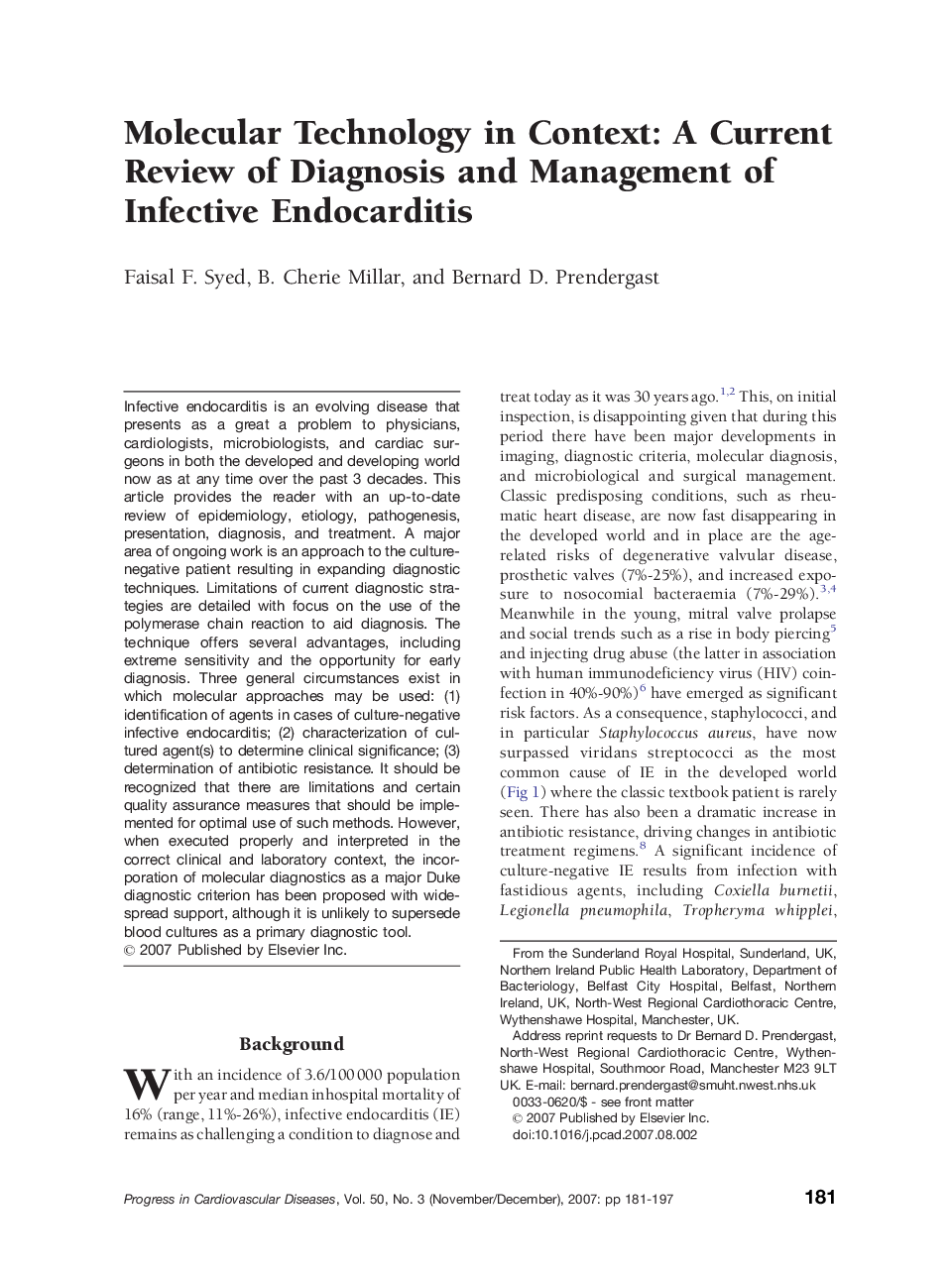| Article ID | Journal | Published Year | Pages | File Type |
|---|---|---|---|---|
| 3007040 | Progress in Cardiovascular Diseases | 2007 | 17 Pages |
Infective endocarditis is an evolving disease that presents as a great a problem to physicians, cardiologists, microbiologists, and cardiac surgeons in both the developed and developing world now as at any time over the past 3 decades. This article provides the reader with an up-to-date review of epidemiology, etiology, pathogenesis, presentation, diagnosis, and treatment. A major area of ongoing work is an approach to the culture-negative patient resulting in expanding diagnostic techniques. Limitations of current diagnostic strategies are detailed with focus on the use of the polymerase chain reaction to aid diagnosis. The technique offers several advantages, including extreme sensitivity and the opportunity for early diagnosis. Three general circumstances exist in which molecular approaches may be used: (1) identification of agents in cases of culture-negative infective endocarditis; (2) characterization of cultured agent(s) to determine clinical significance; (3) determination of antibiotic resistance. It should be recognized that there are limitations and certain quality assurance measures that should be implemented for optimal use of such methods. However, when executed properly and interpreted in the correct clinical and laboratory context, the incorporation of molecular diagnostics as a major Duke diagnostic criterion has been proposed with widespread support, although it is unlikely to supersede blood cultures as a primary diagnostic tool.
